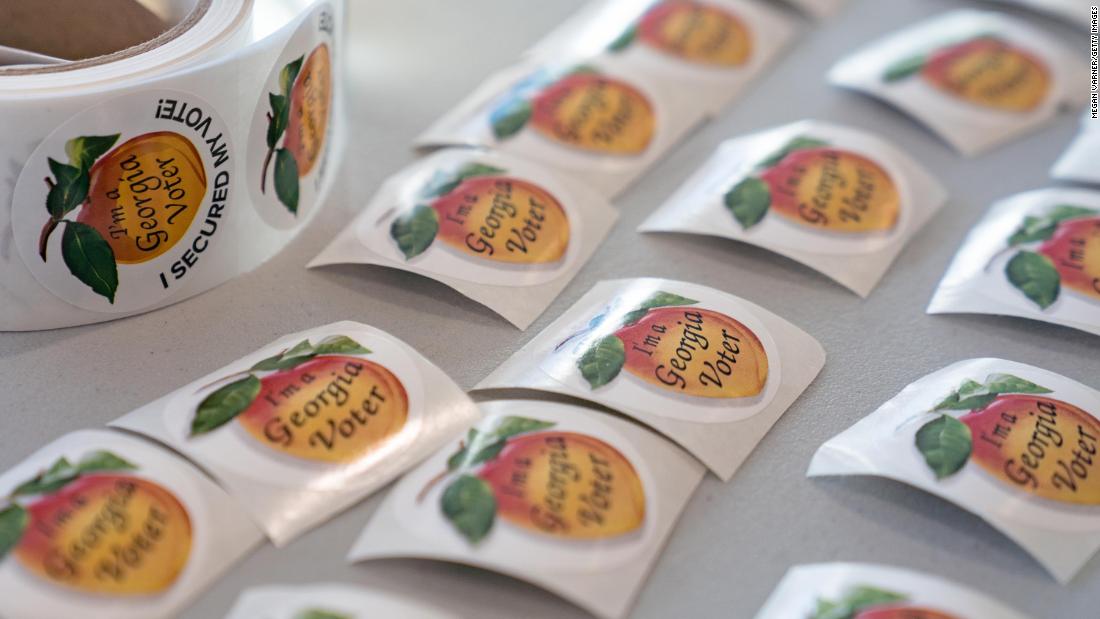
A version of this story appeared in CNN’s What Matters newsletter. To get it in your inbox, sign up for free here.
Millions of American voters may be wondering how changes in key states and a failure to enact a new national standard will affect their acts of voting in the next election, which for most people will be the midterms in November.
I talked to CNN’s national political writer Fredreka Schouten about the nuts and bolts of what will and won’t change. Read her latest story here. Or check out our Q&A below, conducted by email and edited slightly for length.
What would a national voting standard look like?
WHAT MATTERS: What would the new voting standard Democrats are pushing mean for the average voter? How would it change the experience of voting in the US?
SCHOUTEN: If Congress somehow managed to pass elements of the federal Freedom to Vote Act, it would set a floor for voting procedures around the country.
Among other things, it would:
- Make Election Day a federal holiday.
- Allow people to register to vote AND vote on the same day. In Texas, for instance, the deadline to register to vote for the March 1 primary is fast approaching: January 31.
- Broaden the forms of identification needed to vote.
- Make no-excuse voting by mail easier.
Big changes, but they seem unlikely to happen — given the stalemate in the Senate.
What do new restrictions on voting actually do?
WHAT MATTERS: President Joe Biden has framed this voting rights effort as a turning point between democracy and autocracy. How, at the end of this year, will most Americans see their ability to vote changed?
SCHOUTEN: If, as expected, the Senate fails to enact federal voting rights legislation, people very much could see more restrictions on voting ahead of this year’s elections — particularly if they live in battleground states.
The ground rules already shifted from 2020 to 2021.
For example, in Georgia — after a record number of voters opted to cast ballots by mail during the pandemic in 2020 — Republican Gov. Brian Kemp signed a new law last year that, among other things, required identification to vote by mail.
That’s in contrast to the 2020 election, when officials used the signatures on the voters’ mail-in ballots to confirm their identities.
Based on the bills state lawmakers are introducing this month, we could see new voting restrictions enacted in several key states, including Georgia, Florida and Arizona.
A number of the new proposals take aim at drop boxes, which many voters used to turn in their ballots in 2020.
Can these changes sway elections?
WHAT MATTERS: Republican legislatures in key states, in the name of security, have put curbs on mail-in voting and early voting. Is there anything to suggest how these changes will affect turnout?
SCHOUTEN: This year’s elections will offer the first robust test of the effects of those new restrictions.
A troubling sign has cropped up in recent days in Texas, where the state law imposed new identification requirements to vote absentee.
As our colleague Kelly Mena recently reported, election officials in some of the biggest Texas counties are reporting that hundreds of mail-in ballot applications are being rejected. Why?
The new law requires that voters include the last four digits of their Social Security numbers or their driver’s license numbers on their applications for absentee ballots. That’s matched against the information in local records. But the clerks say people either don’t understand the rules or have forgotten which numbers they used when they registered to vote in the first place.
Could that confusion affect turnout? Absolutely.
How does the act of voting vary across states?
WHAT MATTERS: Democrats want a new national voting standard applied to every state. Is access to the ballot really that different from one state to the next?
SCHOUTEN: Yes, very much so. States set the rules for voting, and they vary widely.
Under a new law taking effect this year in Nevada, every active voter in the state will automatically be sent a mail-in ballot — unless they specifically opt out.
In Texas, which we talked about above, only certain categories of people can vote absentee by mail. They include voters with disabilities, those over 65 and people who will be out of the county on Election Day and can’t vote in person.
What’s next?
WHAT MATTERS: The Freedom to Vote Act and the John Lewis Voting Rights Advancement Act are almost guaranteed to fail since Democrats don’t have the votes to break a Republican filibuster. Will that be the end of the debate on Capitol Hill?
SCHOUTEN: Time is certainly running out to pass a sweeping overhaul of election laws if Democrats don’t succeed this week.
A bipartisan group of lawmakers is working on another election-related overhaul. They want to tackle an obscure 1887 law known as the Electoral Count Act that governs the process for certifying the Electoral College votes from the states.
On January 6, 2021, then-Vice President Mike Pence resisted calls by then-President Donald Trump and his allies to exploit perceived weaknesses in the act and insert himself into the vote-counting process to toss out Biden’s slate of electors.
The idea of tweaking the act to make clear the role of vice president has gained more currency on Capitol Hill in recent weeks. So we could see more debate on that issue. And voting and civil rights advocates are certain to lobby lawmakers to broaden the scope of an Electoral Count Act rewrite if the Freedom to Vote Act falters.



